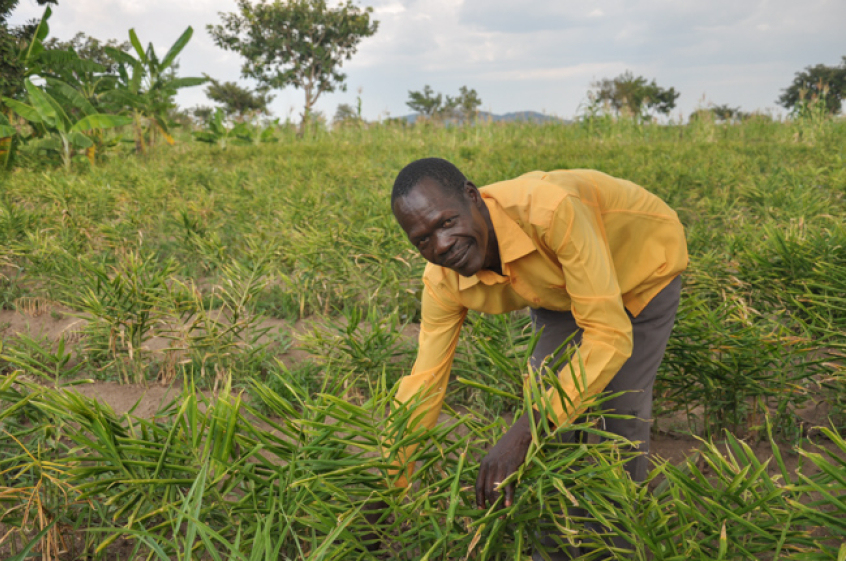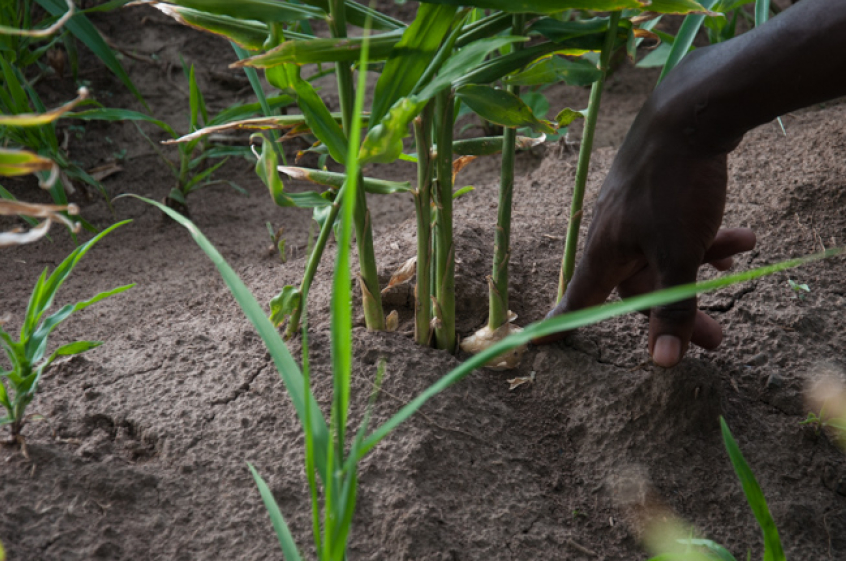In a region of northern Uganda where an estimated 90 per cent of people survive on subsistence farming, Acaye Genesis has a dream.
A dream to transform the lives of Gulu District's struggling farmers through chilli, ginger and bananas. And a dream to share the gospel of Christ as he helps them to meet their very real physical needs.
"In June, there is a month here called the month of hunger," says Genesis. "A typical farmer grows food crops, and that is what they always sell – but when you've done all your selling and the crops you've planted are not yet ready your family suffers."
Approximately 61 per cent of people in Gulu District are living in poverty. It is the poorest region in Uganda, with the majority of the population having spent 20 years in Internally Displaced Person (IDP) camps while their homes and land were ravaged by war. People returned to reclaim their land in 2008, but after two decades stripped of any independence they'd lost their agricultural skills, and the younger generation had never learned to farm at all. Yet the only means of survival for most people in the region is to grow food.
Farmer by heart and by profession, Genesis is working with UK charity BMS World Mission to teach Gulu's farmers biblical techniques for farming, and to introduce them to cash crops that will enable them to earn enough money to send their children to school and to pay for health care.
"We are currently working on ginger, chilli and bananas," he says. "We are the pioneers for ginger in northern Uganda – but the market is here. And chilli was not grown on a commercial basis, but we are trying to introduce it to farmers here."
An average farmer in the area earns 550,000 Ugandan shillings a year – that's the equivalent of 33 pence a day. It's virtually nothing. Genesis has been heading up a project training 100 farmers in Paicho sub-county to grow cash crops to earn more money. And he has found that chilli, ginger and bananas thrive in Gulu's soil. Last month, one of his farmers was picked up by the local radio station for his success, having made two or three million shillings in the last year from growing chilli. And a few other farmers have already made a million shillings this year.
"Of course it makes me happy," says Genesis. "When you are beginning this work, you are not sure if you are going to succeed. But we are moving on. I have seen quite a number of farmers who have picked up on what we are trying to do."
A couple of million shillings is nothing in comparison to Western salaries, but it's making a huge difference for farmers like Ongaba Peter, a 42-year-old pastor and father of five. "The bananas have helped me a lot," says Peter, "just five bunches are enough to send my children to school. And I think when the ginger is ready I will have a lot more money to keep sending my children to school and to keep up with their health needs."

Before taking part in the project, Peter used to grow cassava and groundnuts, which are a commonly grown food crop in the region. "It was very hard in those days because I would have to sell a great quantity of cassava or groundnut to pay for my children to go to school," he says, "so that would mean that I have less to eat at home."
Part of Genesis' work is training the farmers to grow separate crops for cash and for food, so that they don't have to choose between food and an education for their children.
But Genesis' work isn't just about farming. "My second hope is to spread the gospel of Jesus Christ and to meet the spiritual needs of the farmers," he says. "To make them understand that everything they are doing is connected to God and to the Bible."
Through the project, Genesis and the BMS-supported team have been able to share the gospel with non-Christian farmers, pray with them, and even see some of them come to faith. "It looks like agriculture, but through this work we share everything. We share the gospel. There are many times people have asked, 'come and pray with my family,' and we go and pray with them."

At least 100 families are already benefitting from Genesis' work. That's around 700 men, women and children who are reaping more hopeful harvests. In addition, the trained farmers are sharing their knowledge and success with their neighbours and communities, and more farmers are opting to diversify and try growing something new.
"Farming is part of me," says Genesis. "When I grew up, it happened that all the subjects that I loved at school were farming. So I ended up being a professional, and also a farmer myself." Genesis' passion for agriculture and for his country's struggling farmers drives him to pursue his work, and he has even bigger dreams for the future.
When asked how he feels about the success of the project so far, Genesis says, "I give God the glory. Without God, it would not have happened."













